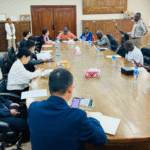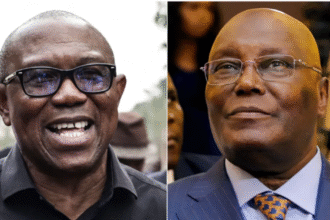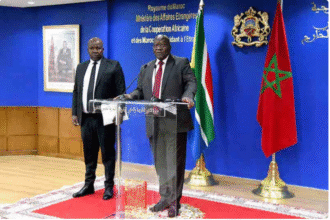By Esther Edoh
London, UK – The UK government has unveiled the specifics of its controversial foreign aid cuts, revealing that Africa will bear the brunt of the reductions, significantly impacting support for children’s education and women’s health. The move implements the government’s earlier decision to slash foreign aid spending by 40% – from 0.5% to 0.3% of gross national income – to reallocate funds towards defense, following pressure from the US.
A Foreign Office report and impact assessment indicate that the steepest cuts this year will be directed at Africa, leading to reduced spending on crucial areas such as women’s health and water sanitation. The report itself acknowledges increased risks of disease and death as a result.
Aid charities have swiftly condemned the decision, arguing that the cuts will disproportionately affect the world’s most vulnerable populations.
Defending the strategy, the government stated that spending on multilateral aid bodies – funds provided to international organizations like the World Bank – would be protected, including the Gavi vaccine alliance. It also affirmed the UK’s commitment to maintaining a key humanitarian role in crisis hotspots such as Gaza, Ukraine, and Sudan.
Baroness Chapman, Minister for Development, commented: “Every pound must work harder for UK taxpayers and the people we help around the world and these figures show how we are starting to do just that through having a clear focus and priorities.” The government further stated that the cuts follow a “line-by-line strategic review of aid” focused on “prioritization, efficiency, protecting planned humanitarian support and live contracts while ensuring responsible exit from programming where necessary.”
However, the Foreign Office also confirmed that bilateral support – aid sent directly to recipient countries – for some nations would decrease, and multilateral organizations deemed underperforming face future funding reductions. The specific countries impacted by these bilateral cuts have not yet been announced.
The move has drawn strong criticism from parliamentary figures and aid organizations. Sarah Champion, chair of the International Development Committee, said it appears the cuts “will come at the expense of some of the world’s most vulnerable people.”
Liberal Democrat international development spokesperson Monica Harding warned that slashing UK aid spending to its “lowest level this century will have an appalling impact on some of the world’s poorest and most vulnerable people.” She added, “This is only the beginning – we will see far deeper and crueler cuts next year when most of the reduction happens.”
Bond, a UK network for international development organizations, expressed deep concern, stating it was clear the government was “deprioritizing” funding for “education, gender and countries experiencing humanitarian crises such as South Sudan, Ethiopia and Somalia, and surprisingly the Occupied Palestinian Territories and Sudan, which the government said would be protected.”
Gideon Rabinowitz, Bond’s policy director, highlighted that “Bilateral funding for Africa, gender, education and health programmes will drop.” He stressed, “The world’s most marginalized communities, particularly those experiencing conflict and women and girls, will pay the highest price for these political choices. At a time when the US has gutted all gender programming, the UK should be stepping up, not stepping back.”
UNICEF, the UN agency dedicated to children’s aid, described the cuts as “deeply short-sighted” and warned they “will have a devastating and unequal impact on children and women.” Philip Goodwin, UNICEF UK chief executive, urged the government to “adopt a new strategic approach that places vulnerable children at the heart of its aid programmes and policies,” advocating for at least 25% of aid to be directed to child-focused initiatives.
British-founded charity Street Child told the BBC that crucial work helping children access education in Sierra Leone, South Sudan, and the Democratic Republic of the Congo – where British aid has been a primary backer – will now cease due to the cuts. CEO Tom Dannatt called the reduction “sad and short-sighted,” explaining, “So children who used to go to school will not go to school, and so, more children will be found roaming the streets and ploughing fields and not developing their critical faculties.”
Foreign aid has increasingly come under public scrutiny in recent years, with one cabinet minister reportedly admitting that public support for such spending has waned.
In a contrasting development, the World Bank’s International Development Association (IDA), which supports the world’s lowest-income countries, was confirmed to receive £1.98 billion in UK funding over the next three years, benefiting an estimated 1.9 billion people.
Historically, Labour governments under Sir Tony Blair and Gordon Brown committed to increasing the overseas aid budget to 0.7% of national income. This target was achieved in 2013 under David Cameron’s Conservative-Liberal Democrat coalition government and subsequently enshrined in law in 2015. However, aid spending was first cut to 0.5% of national income in 2021 by the Conservatives, citing economic pressures from the Covid-19 pandemic.









